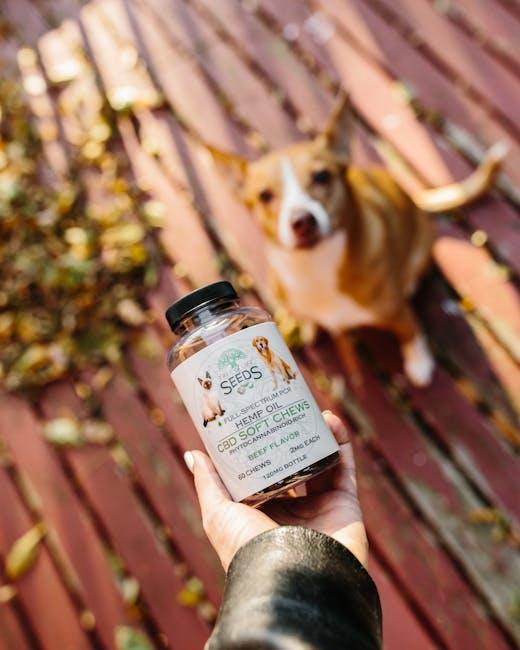In a world where our furry companions often hold the keys to our hearts, ensuring their health and happiness becomes a top priority. As we scour the shelves of pet stores and navigate the vast online marketplace, we’re met with an array of vitamins and supplements promising to enhance the vitality of our beloved pets. But are these colorful bottles truly the magic elixirs they claim to be, or simply another trend in the ever-evolving landscape of pet care? In this article, we’ll journey through the science, stories, and subtleties of pet nutrition to uncover whether these supplements are a necessary addition to our pets’ lives or just an optional extra.
Understanding Your Pets Nutritional Needs
Our furry companions rely on us to provide them with balanced nutrition, yet understanding their dietary needs can sometimes feel like decoding a secret language. Pets require a blend of proteins, fats, carbohydrates, vitamins, and minerals to thrive. While a well-rounded diet should ideally supply these essentials, there are instances where supplements might play a beneficial role.
- Age and Life Stage: Puppies and kittens have different nutritional needs compared to adult or senior pets. Supplements might support growth or joint health.
- Health Conditions: Certain health issues like arthritis or digestive problems could warrant specific vitamins or minerals.
- Dietary Gaps: Homemade or limited ingredient diets might lack certain nutrients, necessitating supplementation.
It’s essential to consult with a veterinarian before introducing any new supplements. They can provide guidance tailored to your pet’s unique health profile, ensuring that you’re meeting their needs without over-supplementing, which can sometimes do more harm than good.

The Science Behind Supplements: What Really Works
Understanding the role of vitamins and supplements in pet health is crucial. Pets, like humans, can benefit from targeted nutritional support. However, it’s important to distinguish between what is genuinely beneficial and what’s just a marketing gimmick. The effectiveness of these supplements largely depends on individual needs, dietary gaps, and specific health conditions.
Key supplements that have shown promise include:
- Omega-3 Fatty Acids: Known for supporting joint health and reducing inflammation.
- Probiotics: Aid in digestion and promote a healthy gut microbiome.
- Glucosamine and Chondroitin: Often recommended for joint support, especially in aging pets.
Consulting with a veterinarian is essential to tailor the right supplements for your pet’s specific needs. After all, a personalized approach ensures your furry friend receives the most effective and safe nutritional boost.

Tailored Nutrition: When Supplements Make Sense
Just like humans, pets have unique nutritional needs that can vary based on their age, breed, and health status. While a balanced diet is crucial, sometimes additional support can make all the difference. Supplements can be particularly beneficial in certain situations:
- Senior Pets: As pets age, they may require extra joint support or vitamins to maintain vitality.
- Specific Health Conditions: Pets with digestive issues, allergies, or chronic conditions might benefit from targeted supplements.
- Active or Working Animals: Dogs that participate in sports or work may need additional nutrients to support their energy levels.
It’s important to consult with a veterinarian to determine if supplements are necessary for your furry friend. They can provide guidance on what might best support your pet’s well-being, ensuring that any supplementation is both safe and effective.

Expert Tips for Choosing the Right Vitamins
Choosing the right vitamins for your furry friend can feel overwhelming, but with a few expert tips, you’ll be on the right track. First, always consult your veterinarian. They know your pet’s specific health needs and can recommend supplements that truly benefit them. Avoid one-size-fits-all solutions; each pet is unique.
Consider these factors when selecting vitamins:
- Age and Breed: Different life stages and breeds have varying nutritional requirements.
- Health Conditions: Specific health issues may require targeted supplements, such as joint support for older pets.
- Diet: Analyze your pet’s current diet to identify any nutritional gaps.
Look for high-quality brands with transparent ingredient lists. Natural ingredients are often preferable. Remember, more isn’t always better; proper dosage is key to avoiding potential health risks.


































